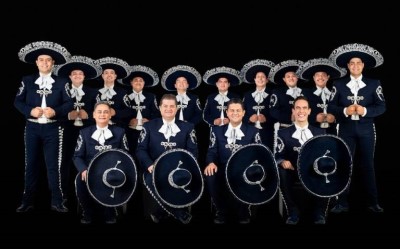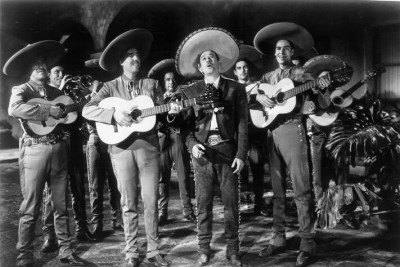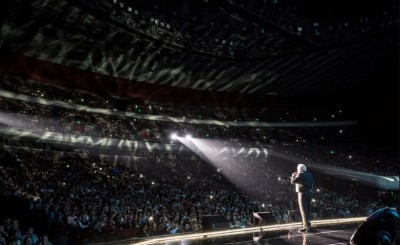Ranchera Music: Symphony of the Mexican Soul
Ranchera music, an emblem of Mexican identity, weaves a vibrant tale of Mexican history and emotions. Originating in the 19th century, it was born in the fields, among the “campesinos”, finding its voice in the simplicity of rural life. However, it was through Mexican cinema from the 1930s to the 1970s that the ranchera rose to prominence, becoming a cultural phenomenon that transcended borders.
A genre born of the land

Mariachi Vargas de Tecalitlán (D.R.)
Ranchera originated in the states of Jalisco and Guanajuato, cradles of agriculture and livestock farming. The melodies that emerged from the ranchos reflected the lives, struggles and passions of the workers on the land. After the Mexican Revolution of 1910, the ranchera evolved, echoing feelings of rebellion against social inequality, while celebrating love, patriotism and the beauty of nature.
The Golden Age of Cinema: A Cultural Catalyst

Pedro Infante (D.R.)
The rise of the ranchera is inextricably linked with the golden age of Mexican cinema. Films such as “Allá en el Rancho Grande” (1936) not only marked the beginning of Mexico’s cinematic industrialisation, but also anchored the ranchera in the collective imagination, through romantic tales and love tragedies brought to life by powerful songs that have become an essential part of Latin American musical culture.
The Icons of La Ranchera
Legendary figures such as Pedro Infante, Jorge Negrete, Lola Beltrán (The Queen of Ranchera Song) and Maria de Lourdes have taken ranchera beyond borders, proving its universality and ability to move across language barriers and touch hearts in countries as diverse as Russia, the Netherlands and Indonesia. Among the modern artists who have continued to popularise this music are Juan Gabriel – with over 100 million albums sold -, Natalia Lafourcade and Alejandro Fernández, son of ranchera legend ‘El Rey’ Vicente Fernández.
Our article: Rhythms of Colombia, The Vallenato
Mariachi: The Musical Essence of the Ranchera

Concert by Vicente Fernández, Mexico City National Auditorium (Credit: Fernando Aceves)
According to UNESCO, the mariachi, an intangible cultural heritage of humanity, is the soul of the ranchera These musical ensembles, traditionally made up of guitars, violins, trumpets and sometimes harps, play a crucial role in creating a distinctive sound that accompanies the powerful voices. They combine traditions and diverse influences that form the identity of the Mexican people. Mariachi Vargas de Tecalitlán, in particular, has played a crucial role in popularising this style, becoming synonymous with Mexican music worldwide.
Ranchera music, with its rich heritage and indelible impact on world culture, remains an inexhaustible source of inspiration. Instantly recognisable, it eloquently conveys the soul of a nation, forging an intimate link with its ancestral traditions, rooted in a land rich in contrasts, fervent emotions and spellbinding beauty.
RECENT POSTS

Montevideo, New Headquarters of the Tourism Law Observatory for Latin America and the Caribbean
LATAM NEWS Montevideo, New Headquarters of the Tourism Law Observatory for Latin America and the CaribbeanMontevideo, the capital of Uruguay, has been designated as the headquarters of the Tourism Law Observatory for Latin America and the Caribbean, an initiative...

Guanacaste: An Escape to the Heart of Costa Rican Biodiversity
DESTINATIONS Guanacaste: An Escape to the Heart of Costa Rican Biodiversity Situated in the north-west of Costa Rica, the province of Guanacaste is a natural paradise that captivates visitors with its ecological diversity, heavenly beaches and deep-rooted cultural...

“Meaningful Meetings in Peru 2024”: A New Era for Meeting Tourism
LATAM NEWS “Meaningful Meetings in Peru 2024”: A New Era for Meeting Tourism Peru's Export and Tourism Promotion Agency (PROMPERÚ) recently launched its ‘Meaningful Meetings in Peru 2024’ campaign. This initiative aims to position Peru as a destination of...


